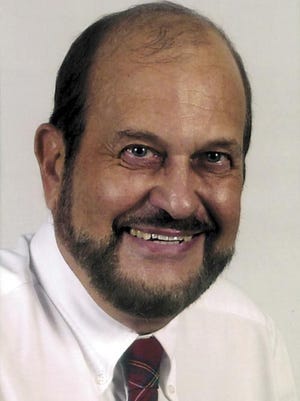Almost any way you look at it, the current request by California’s largest utility company for $1.36 billion over the next three years in subsides for its wildfire prevention program can only be described as yet another attempt to rip off its 16 million customers.
It will be up to the five-member California Public Utilities Commission (PUC) to decide whether the company gets away with this latest attempt at highway robbery.
Plus, it’s a virtual certainty that if PG&E gets the money it now seeks, the state’s other big privately-owned electric companies — Southern California Edison and San Diego Gas & Electric — will shortly beg for a similar handout.
These companies are never bashful about asking for handouts. This was evident when Edison tried to get consumers to foot almost the entire bill of about $5 billion for shutting down its disabled San Onofre Nuclear Generating Station, destroyed in 2012 by a company blunder.
Also when the utilities in 2020 gladly accepted a $13 billion state-mandated subsidy from their customers to pay for damages from future wildfires they might cause. And now, as PG&E gladly takes more than $2.5 billion from consumers and federal taxpayer subsidies to keep its Diablo Canyon nuclear power plant open five years beyond the previous retirement date.
What makes the newest PG&E request for a big consumer subsidy (an average of about $7.50 per month per customer for the next three years) especially outrageous is that the big utilities collected maintenance money from their customers every month between 1955 and 2005, a total of about $65 billion over 50 years.
Most of that money was never used for maintenance. Rather, it went to executive bonuses, salary increases and other goodies until the PUC finally stopped the practice.
But none of the state’s three large private electric companies was ever found for misuse of this money, nor were any executives punished, or any funds repaid.
Meanwhile, vegetation near power lines grew nearly unchecked for decades, trees began encroaching on those same lines and both gas pipes and power lines deteriorated, mostly without being replaced or repaired. Bingo: major fires and a huge explosion resulted.
That was one reason PG&E was convicted of criminal negligence after its massive 30-inch-wide gas pipeline exploded beneath the suburb of San Bruno, causing multiple deaths and extensive damage. Negligence was also likely one reason for the unprecedented, almost four-month natural gas leak from Southern California Gas Co.’s Aliso Canyon storage facility just above the Porter Ranch subdivision in the San Fernando Valley section of Los Angeles in 2015 and 2016. Not to mention the 2018 incineration of Paradise and dozens of its people.
No executive has ever been criminally punished for misuse of the maintenance money, despite these consequences and many more.
Even now, utility company maintenance is demonstrably inadequate. For example, an independent safety monitor overseeing recent PG&E anti-wildfire work found the company during one recent three-month period missed issues like damaged poles in about 30 percent of all inspections.
For sure, this type of history and performance demonstrates that utility companies, their executives and shareholders — not customers who have no voice in corporate policy — should pay for current maintenance work and repairs.
Yet, the PUC, long a utility company lapdog, appears likely to give the consumer subsidy at least temporary approval this winter, with refunds possible if a more thorough consideration set to follow should cause the charge to be disapproved.
That’s a procedure playing into PG&E’s hands. For once it has money in hand, it’s very rare for customers to get it back.
Far better would be for the commission instead to have PG&E use some of the maintenance money it collected over those previous decades. And if some statute of limitations on punishment for earlier misuse of funds has expired (the PUC’s code requires only “prompt” hearings on suspected wrongdoing), then the PUC ought at least to force PG&E to advance whatever money is needed for the anti-wildfire work while it considers whether to reduce or fully disapprove the subsidy PG&E now seeks.
But this would require the commission to give consumers equal treatment with the big corporations it supervises. And that would be almost unprecedented.
Email Thomas Elias at [email protected].


Comments are closed.